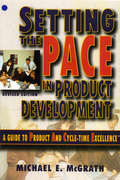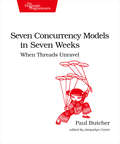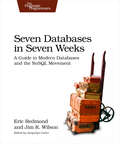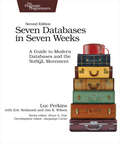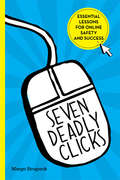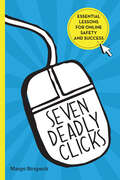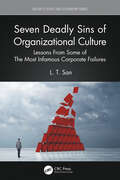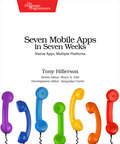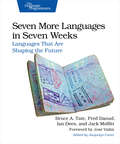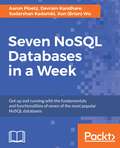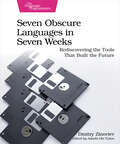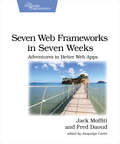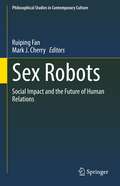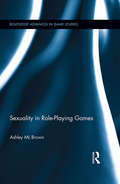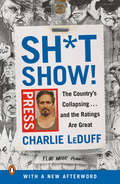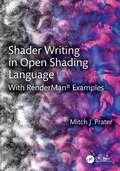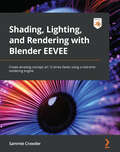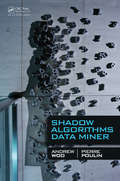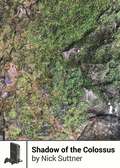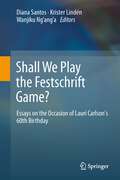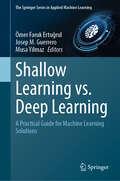- Table View
- List View
Setting the PACE in Product Development
by Michael E. McGrathSetting the PACE in Product Development describes how to effectively manage the key ingredients of successful product development: time, quality, talent and resources. This revised edition of Product Development provides essential insight as to how to efficiently organize people, resources and processes to dramatically improve financial results, strategic positions, internal morale and customer satisfaction. The PACE techniques integrate vital company-wide functions, engaging the entire company and focusing its collective energy on strategically and financially important goals.
Seven Concurrency Models in Seven Weeks: When Threads Unravel
by Paul ButcherYour software needs to leverage multiple cores, handle thousands of users and terabytes of data, and continue working in the face of both hardware and software failure. Concurrency and parallelism are the keys, and Seven Concurrency Models in Seven Weeks equips you for this new world. See how emerging technologies such as actors and functional programming address issues with traditional threads and locks development. Learn how to exploit the parallelism in your computer's GPU and leverage clusters of machines with MapReduce and Stream Processing. And do it all with the confidence that comes from using tools that help you write crystal clear, high-quality code.This book will show you how to exploit different parallel architectures to improve your code's performance, scalability, and resilience. You'll learn about seven concurrency models: threads and locks, functional programming, separating identity and state, actors, sequential processes, data parallelism, and the lambda architecture.Learn about the perils of traditional threads and locks programming and how to overcome them through careful design and by working with the standard library. See how actors enable software running on geographically distributed computers to collaborate, handle failure, and create systems that stay up 24/7/365. Understand why shared mutable state is the enemy of robust concurrent code, and see how functional programming together with technologies such as Software Transactional Memory (STM) and automatic parallelism help you tame it.You'll learn about the untapped potential within every GPU and how GPGPU software can unleash it. You'll see how to use MapReduce to harness massive clusters to solve previously intractable problems, and how, in concert with Stream Processing, big data can be tamed. With an understanding of the strengths and weaknesses of each of the different models and hardware architectures, you'll be empowered to tackle any problem with confidence.What You Need:The example code can be compiled and executed on *nix, OS X, or Windows. Instructions on how to download the supporting build systems are given in each chapter.
Seven Databases in Seven Weeks: A Guide to Modern Databases and the NoSQL Movement
by Jim Wilson Eric RedmondData is getting bigger and more complex by the day, and so are the choices in handling that data. As a modern application developer you need to understand the emerging field of data management, both RDBMS and NoSQL. Seven Databases in Seven Weeks takes you on a tour of some of the hottest open source databases today. In the tradition of Bruce A. Tate's Seven Languages in Seven Weeks, this book goes beyond your basic tutorial to explore the essential concepts at the core each technology.Redis, Neo4J, CouchDB, MongoDB, HBase, Riak and Postgres. With each database, you'll tackle a real-world data problem that highlights the concepts and features that make it shine. You'll explore the five data models employed by these databases-relational, key/value, columnar, document and graph-and which kinds of problems are best suited to each.You'll learn how MongoDB and CouchDB are strikingly different, and discover the Dynamo heritage at the heart of Riak. Make your applications faster with Redis and more connected with Neo4J. Use MapReduce to solve Big Data problems. Build clusters of servers using scalable services like Amazon's Elastic Compute Cloud (EC2).Discover the CAP theorem and its implications for your distributed data. Understand the tradeoffs between consistency and availability, and when you can use them to your advantage. Use multiple databases in concert to create a platform that's more than the sum of its parts, or find one that meets all your needs at once. Seven Databases in Seven Weeks will take you on a deep dive into each of the databases, their strengths and weaknesses, and how to choose the ones that fit your needs.What You Need:To get the most of of this book you'll have to follow along, and that means you'll need a *nix shell (Mac OSX or Linux preferred, Windows users will need Cygwin), and Java 6 (or greater) and Ruby 1.8.7 (or greater). Each chapter will list the downloads required for that database.
Seven Databases in Seven Weeks: A Guide to Modern Databases and the NoSQL Movement
by Jim Wilson Eric Redmond Luc PerkinsData is getting bigger and more complex by the day, and so are your choices in handling it. Explore some of the most cutting-edge databases available - from a traditional relational database to newer NoSQL approaches - and make informed decisions about challenging data storage problems. This is the only comprehensive guide to the world of NoSQL databases, with in-depth practical and conceptual introductions to seven different technologies: Redis, Neo4J, CouchDB, MongoDB, HBase, Postgres, and DynamoDB. This second edition includes a new chapter on DynamoDB and updated content for each chapter. While relational databases such as MySQL remain as relevant as ever, the alternative, NoSQL paradigm has opened up new horizons in performance and scalability and changed the way we approach data-centric problems. This book presents the essential concepts behind each database alongside hands-on examples that make each technology come alive. With each database, tackle a real-world problem that highlights the concepts and features that make it shine. Along the way, explore five database models - relational, key/value, columnar, document, and graph - from the perspective of challenges faced by real applications. Learn how MongoDB and CouchDB are strikingly different, make your applications faster with Redis and more connected with Neo4J, build a cluster of HBase servers using cloud services such as Amazon's Elastic MapReduce, and more. This new edition brings a brand new chapter on DynamoDB, updated code samples and exercises, and a more up-to-date account of each database's feature set. Whether you're a programmer building the next big thing, a data scientist seeking solutions to thorny problems, or a technology enthusiast venturing into new territory, you will find something to inspire you in this book.What You Need:You'll need a *nix shell (Mac OS or Linux preferred, Windows users will need Cygwin), Java 6 (or greater), and Ruby 1.8.7 (or greater). Each chapter will list the downloads required for that database.
Seven Deadly Clicks
by Margo StrupeckPulling examples from high-profile pop culture cases, Seven Deadly Clicks explains the very real dangers behind common online activities. The book covers everything from over-sharing to sexting, online addiction, and more. Teens and parents will not only learn how to identify and prevent falling into these digital traps, but also how to recover if they do happen to make a mistake. This ebook exclusive acts as an internet safety net, giving teens an entertaining, yet informative, resource tohelp navigate potential pitfalls and still live fulfilling lives online.
Seven Deadly Clicks: Essential Lessons for Online Safety and Success
by Margo StrupeckPulling examples from high-profile pop culture cases, Seven Deadly Clicks explains the very real dangers behind common online activities. The book covers everything from over-sharing to sexting, online addiction, and more. Teens and parents will not only learn how to identify and prevent falling into these digital traps, but also how to recover if they do happen to make a mistake. This ebook exclusive acts as an internet safety net, giving teens an entertaining, yet informative, resource tohelp navigate potential pitfalls and still live fulfilling lives online.
Seven Deadly Sins of Organizational Culture: Lessons From Some of The Most Infamous Corporate Failures (Security, Audit and Leadership Series)
by L. T. SanThis book is about the primary symptoms present in a dysfunctional culture that could have devastating outcomes for any organization. The book outlines each of the seven sins in each chapter. Each of the first seven chapters (Chapters 1–7) starts with a famous quote related to each of the sins and then immediately recounts stories ripped from the headlines describing well-known corporate failures but with a personal touch from former employees who experienced those stories from inside the company. (The sources for these stories are all cited in their Bibliographies.) The seven sins of organizational culture are linked with seven different corporate scandals that serve as a "lesson learned" as well as seven stories of organizations that have been successful with each respective organizational attribute as follows: Flawed Mission and Misaligned Values uses WorldCom as the lesson learned and Patagonia as the success case. Flawed Incentives uses Wells Fargo as the lesson learned and Bridgeport Financial as the success case. Lack of Accountability uses HSBC as the lesson learned and McDonald’s as the success case. Ineffective Talent Management uses Enron as the lesson learned and Southwest Airlines as the success case. Lack of Transparency uses Theranos as the lesson learned and Zappos as the success case. Ineffective Risk Management uses the 2008 mortgage industry collapse as the lesson learned and Michael Burry as the success case. Ineffective Leadership summarizes all of the foregoing sins as failures of Leadership. In each chapter and for each organizational sin, the author offers seven attributes of a healthy culture to counter the cultural dysfunction. The seven healthy attributes for each of the seven sins are all original content. In Chapter 8, the author offers an approach for assessing an organization’s culture by providing seven ways to measure the different drivers of organizational culture. The ideas for how to measure corporate culture is original content, with some references to existing frameworks (all cited in the Bibliography.) Finally, in Chapter 9, the author offers a step-by-step outline for transforming the culture. The chapter starts with a story about how Korean Air suffered multiple crashes due to their corporate culture but were able to successfully transform their culture. (The source for the Korean Air story is cited in the Bibliography.) There are seven appendices, most of which are by the author except for the maturity of risk management, which references an OECD (government entity) risk management maturity framework.
Seven Mobile Apps in Seven Weeks: Native Apps, Multiple Platforms
by Tony HillersonAnswer the question "Can we build this for ALL the devices?" with a resounding YES. Learn how to build apps using seven different platforms: Mobile Web, iOS, Android, Windows, RubyMotion, React Native, and Xamarin. Find out which cross-platform solution makes the most sense for your needs, whether you're new to mobile or an experienced developer expanding your options. Start covering all of the mobile world today.Understanding the idioms, patterns, and quirks of the modern mobile platforms gives you the power to choose how you develop. Over seven weeks you'll build seven different mobile apps using seven different tools. You'll start out with Mobile Web; develop native apps on iOS, Android, and Windows; and finish by building apps for multiple operating systems using the native cross-platform solutions RubyMotion, React Native, and Xamarin.For each platform, you'll build simple, but non-trivial, apps that consume JSON data, run on multiple screen sizes, or store local data. You'll see how to test, how to build views, and how to structure code. You'll find out how much code it's possible to share, how much of the underlying platform you still need to know, and ultimately, you'll get a firm understanding of how to build apps on whichever devices your users prefer.This book gives you enough first-hand experience to weigh the trade-offs when building mobile apps. You'll compare writing apps on one platform versus another and understand the benefits and hidden costs of cross-platform tools. You'll get pragmatic, hands-on experience writing apps in a multi-platform world.What You Need:You'll need a computer and some experience programming. When we cover iOS, you'll need a Mac, and when we cover Windows Phone you'll need a computer with Windows on it. It's helpful if you have access to an iPhone, Android phone, and Windows Phone to run the examples on the devices where mobile apps are ultimately deployed, but the simulators or emulator versions of those phones work great.
Seven More Languages in Seven Weeks: Languages That Are Shaping the Future
by Bruce Tate Jack Moffitt Ian Dees Frederic DaoudGreat programmers aren't born--they're made. The industry is moving from object-oriented languages to functional languages, and you need to commit to radical improvement. New programming languages arm you with the tools and idioms you need to refine your craft. While other language primers take you through basic installation and "Hello, World," we aim higher. Each language in Seven More Languages in Seven Weeks will take you on a step-by-step journey through the most important paradigms of our time. You'll learn seven exciting languages: Lua, Factor, Elixir, Elm, Julia, MiniKanren, and Idris.Learn from the award-winning programming series that inspired the Elixir language. Hear how other programmers across broadly different communities solve problems important enough to compel language development. Expand your perspective, and learn to solve multicore and distribution problems.In each language, you'll solve a non-trivial problem, using the techniques that make that language special. Write a fully functional game in Elm, without a single callback, that compiles to JavaScript so you can deploy it in any browser. Write a logic program in Clojure using a programming model, MiniKanren, that is as powerful as Prolog but much better at interacting with the outside world. Build a distributed program in Elixir with Lisp-style macros, rich Ruby-like syntax, and the richness of the Erlang virtual machine. Build your own object layer in Lua, a statistical program in Julia, a proof in code with Idris, and a quiz game in Factor.When you're done, you'll have written programs in five different programming paradigms that were written on three different continents. You'll have explored four languages on the leading edge, invented in the past five years, and three more radically different languages, each with something significant to teach you.
Seven NoSQL Databases in a Week: Get up and running with the fundamentals and functionalities of seven of the most popular NoSQL databases
by Xun Brian Wu Sudarshan Kadambi Devram Kandhare Aaron PloetzA beginner's guide to get you up and running with Cassandra, DynamoDB, HBase, InfluxDB, MongoDB, Neo4j, and RedisKey FeaturesCovers the basics of 7 NoSQL databases and how they are used in the enterprisesQuick introduction to MongoDB, DynamoDB, Redis, Cassandra, Neo4j, InfluxDB, and HBaseIncludes effective techniques for database querying and managementBook DescriptionThis is the golden age of open source NoSQL databases. With enterprises having to work with large amounts of unstructured data and moving away from expensive monolithic architecture, the adoption of NoSQL databases is rapidly increasing. Being familiar with the popular NoSQL databases and knowing how to use them is a must for budding DBAs and developers.This book introduces you to the different types of NoSQL databases and gets you started with seven of the most popular NoSQL databases used by enterprises today. We start off with a brief overview of what NoSQL databases are, followed by an explanation of why and when to use them. The book then covers the seven most popular databases in each of these categories: MongoDB, Amazon DynamoDB, Redis, HBase, Cassandra, InfluxDB, and Neo4j. The book doesn't go into too much detail about each database but teachesyou enough to get started with them.By the end of this book, you will have a thorough understanding of the different NoSQL databases and their functionalities, empowering you to select and use the rightdatabase according to your needs.What you will learnUnderstand how MongoDB provides high-performance, high-availability, and automatic scalingInteract with your Neo4j instances via database queries, Python scripts, and Java application codeGet familiar with common querying and programming methods to interact with RedisStudy the different types of problems Cassandra can solveWork with HBase components to support common operations such as creating tables and reading/writing dataDiscover data models and work with CRUD operations using DynamoDBDiscover what makes InfluxDB a great choice for working withtime-series dataWho this book is forIf you are a budding DBA or a developer who wants to get started with the fundamentals of NoSQL databases, this book is for you. Relational DBAs who want to get insights into the various offerings of popular NoSQL databases will also find this book to be very useful.
Seven Obscure Languages in Seven Weeks
by Dmitry ZinovievImmerse yourself in the intricate world of forgotten programming languages with Seven Obscure Languages in Seven Weeks. This comprehensive guide serves as a bridge to understanding and revitalizing legacy code, offering invaluable insights into the evolution of programming. With hands-on tutorials spanning languages from Forth and Simula to SNOBOL and m4, readers are equipped to maintain older systems and gain a broader perspective on problem-solving techniques. Whether you are a seasoned developer, a software historian, or just curious about the roots of modern coding, this book illuminates the rich tapestry of programming's past and sheds light on its present and future.Venture into overlooked and long-forgotten programming languages that once stood at the forefront of technological innovation. From the stack-oriented design of Forth to the early object-oriented experiences in Simula, bridge the ever-widening chasm between contemporary code and legacy systems. If you find yourself ensnared by the challenges of updating or maintaining older systems, this book is the lifeline.Unravel the fabric of seven programming languages by following practical tutorials and building small applications. Find out how Simula led to C++, what made APL so powerful, and why we still use m4 even to this day. Along the way, you'll broaden your problem-solving horizons, and develop diverse approaches to computation that still ripple through today's coding landscape. By the final chapter, you won't merely possess historical knowledge, you'll be equipped with production ready skills capable of tackling projects that interface with legacy code.Trace the evolutionary lineage of programming to gain a predictive edge in anticipating future trends. After all, this isn't just a nostalgic trip - it's a roadmap to the past, present, and future of coding.What You Need:Various software tools and compilers are available for enthusiasts eager to explore the once-forgotten languages detailed in this book. Guidance is provided primarily for Linux users on accessing these older programming languages. This collection includes languages like m4, integral to the GNU Autoconf system, and other languages incorporated into the GNU ecosystem, such as APL, Forth, and Simula. For those with a penchant for nostalgia, there is the SNOBOL4.2, which can run using the DOSBox MS-DOS emulator. KRoC, an Occam compiler, works only with 32-bit architectures or in a docker. Suffolk University maintains Starset's modern implementation. Readers can find links to repositories of these development tools, ensuring they can fully immerse themselves in this intriguing journey.
Seven Web Frameworks in Seven Weeks: Adventures in Better Web Apps
by Jack Moffitt Frederic DaoudWhether you need a new tool or just inspiration, Seven Web Frameworks in Seven Weeks explores modern options, giving you a taste of each with ideas that will help you create better apps. You'll see frameworks that leverage modern programming languages, employ unique architectures, live client-side instead of server-side, or embrace type systems. You'll see everything from familiar Ruby and JavaScript to the more exotic Erlang, Haskell, and Clojure.The rapid evolution of web apps demands innovative solutions: this survey of frameworks and their unique perspectives will inspire you and get you thinking in new ways to meet the challenges you face daily.This book covers seven web frameworks that are influencing modern web applications and changing web development: Sinatra, CanJS, AngularJS, Ring, Webmachine, Yesod, Immutant. Each of these web frameworks brings unique and powerful ideas to bear on building apps. Embrace the simplicity of Sinatra, which sheds the trappings of large frameworks and gets back to basics with Ruby. Live in the client with CanJS, and create apps with JavaScript in the browser. Be declarative with AngularJS; say what you want, not how to do it, with a mixture of declarative HTML and JavaScript. Turn the web into data with Ring, and use Clojure to make data your puppet. Become a master of advanced HTTP with Webmachine, and focus the power of Erlang. Prove web theorems with Yesod; see how Haskell's advanced type system isn't just for academics. Develop in luxury with Immutant, an enlightened take on the enterprise framework.Seven Web Frameworks will influence your work, no matter which framework you currently use.Welcome to a wider web.What You Need:You'll need Windows, MacOS X or Linux, along with your favorite web browser. Each chapter will cover what you need to download and which language versions are required.
Sewing to Sell: How To Sell Locally & Online; The Beginner's Guide to Starting a Craft Business
by Virginia LindsayThe creator of Gingercake Patterns shows you how to share your passion for sewing with the world by starting a successful home business. Maybe you started sewing just for fun. But now you&’ve developed the skills and vision to turn your creative outlet into something more. Making the leap from hobbyist to professional can be intimidating—but Virginia Lindsay is here to help you get off the sidelines and sew your way to a job you truly enjoy. Drawing on her own experience, Lindsay guides you through every aspect of starting your own craft business, from finding your personal sewing style to creating a product line, identifying customers, equipping your studio, pricing and selling your work, marketing yourself, designing your own patterns, and handling the business and legal side of sewing. And that's not all! Virginia also shares 16 projects (all customer-tested) that you can personalize to start sewing and selling right now.
Sex Robots: Social Impact and the Future of Human Relations (Philosophical Studies in Contemporary Culture #28)
by Ruiping Fan Mark J. CherryThis book provides cross-cultural ethical exploration of sex robots and their social impact. What are the implications of sex robots and related technological innovations for society and culture? How should we evaluate the significance of sexual relations with robots that look like women, men or children? Critics argue that sex robots present a clear risk to real persons and a social degradation that will increase sexual violence, objectify women, encourage pedophilia, reinforce negative body images, increase forms of sexual dysfunction, and pass on sexually transmitted disease. Proponents judge robotic sexual companionship as just another step in the exploration of human desire. They see sex robots, and similar technology, such as virtual reality pornography, as providing autonomy affirming companionship for the lonely and a relatively harmless outlet for sexual fantasies that avoids the use of human prostitutes and thus reduces sexual victimization. Some appreciate sex robots as a social evil, others as a positive good, and still others as a harmless pastime. How we come to terms with such conceptual and moral concerns will have significant implications for society and the future of human relations. This book is of great interest to researchers in bioethics, human sexual behavior, AI ethics, and philosophy of sex.
Sexting and Cyberbullying
by Shaheen ShariffDirected at policy makers, legislators, educators, parents, members of the legal community, and anyone concerned about current public policy responses to sexting and cyberbullying, this book examines the lines between online joking and legal consequences. It offers an analysis of reactive versus preventive legal and educational responses to these issues using evidence-based research with digitally empowered kids. Shaheen Shariff highlights the influence of popular and "rape" culture on the behavior of adolescents who establish sexual identities and social relationships through sexting. She argues that we need to move away from criminalizing children and toward engaging them in the policy-development process, and she observes that important lessons can be learned from constitutional and human rights frameworks. She also draws attention to the value of children's literature in helping the legal community better understand children's moral development - and the judicial approaches and biases in assessing children's culpability - and in helping children clarify the lines between harmless jokes and harmful postings that could land them in jail.
Sexuality in Role-Playing Games (Routledge Advances in Game Studies)
by Ashley ML BrownRole-playing games offer a chance to pretend, make believe, and share fantasy. They often invoke heavy themes into their game play: morality, violence, politics, spirituality, or sexuality. Although interesting moral debates perennially appear in the media and academia concerning the appropriateness of games’ ability to deal with such adult concepts, very little is known about the intersection between games, playfulness, and sexuality and what this might mean for players. This book offers an in-depth, ethnographic look into the phenomenon of erotic role-play through the experiences of players in multiplayer and tabletop role-playing games. Brown explores why participants engage in erotic role-play; discusses the rules involved in erotic role-play; and uncovers what playing with sexuality in ludic environments means for players, their partners, and their everyday lives. Taken together, this book provides a rich, nuanced, and detailed account of a provocative topic.
Sexy Web Design: Creating Interfaces that Work
by Elliot Jay StocksSexy Web Design is an easy-to-follow guide that reveals the secrets of how to build your own breathtaking web interfaces from scratch. You'll be guided through the entire process of creating a gorgeous, usable web site by applying the timeless principles of user-centered design. Even if you're short on design skills, with this book you'll be creating your own stunning web sites in no time at all. Throughout, the focus is on simple and practical techniques that anyone can use - you don't need to have gone to art school or have artistic flair to create stunning designs using the methods outlined in this book. The book's full-color layout and large format (8" x 10") make Sexy Web Design a pleasure to read. Master key web interface design principles Design amazing web interfaces from scratchCreate beautiful, yet functional, web sitesUnleash your artistic talentsAnd much more Who should read this book? Whether you're completely new to web design, a seasoned pro looking for inspiration, or a developer wanting to improve your sites' aesthetics, there's something for everyone here. How? Because instead of trying to cover every possible area of creating a web site, we've focused purely on the design stage; that is, everything that happens before a single line of code is written. However, great design is more than just aesthetics. Long before we open our graphics program of choice, we'll be conducting research, dealing with clients, responding to briefs, sketching out sitemaps, planning information architecture, moving from doodles to diagrams, exploring different ways of interactivity, and building upon design traditions. But ultimately, you'll be finding out how to create web sites that look drop-dead gorgeous.
Sh**ged. Married. Annoyed.: The Sunday Times No. 1 Bestseller
by Chris Ramsey Rosie RamseyWhether you've barely recovered from spending lockdown with your other half or desperately heading back to the clubs to meet 'the one', SH**GED. MARRIED. ANNOYED. is here to see you through . . .THE SUNDAY TIMES BESTSELLER FROM THE STARS OF THE CHART-TOPPING PODCASTNOW FEATURING A BONUS CHAPTER'An absolute triumph' Daisy May Cooper'These two are bloody hilarious' Zoe Sugg'A hilarious look at the highs and lows of relationships' Sun__________SH**GED.Hitting the bars, necking drinks and necking strangers, stumbling home, one-night-stands, nightmare dates, thinking this one's alright, ghosting, tears, more drinking, living off late-night chips.MARRIED.Meeting 'the one', weekends away, moving in, declaring life-long love, stags and hens, the perfect wedding, the honeymoon period, getting through the hard bits together, starting a family.ANNOYED.Can you close the bathroom door if you're doing that? Sleepless nights, arguing about whose turn it is to change the baby's nappy, toys everywhere, only having two drinks, still being hungover, wondering when it all stopped being easy.Whether you're sh**ged, married, annoyed, or all of the above, Chris and Rosie Ramsey write hilariously and with honesty about the ups and downs of dating, relationships, arguing, parenting and everything in between.
Sh*tshow!: The Country's Collapsing . . . and the Ratings Are Great
by Charlie LeDuffA daring, firsthand, and utterly-unscripted account of crisis in America, from Ferguson to Flint to Cliven Bundy's ranch to Donald Trump's unstoppable campaign for President--at every turn, Pulitzer-prize winner and bestselling author of Detroit: An American Autopsy, Charlie LeDuff was thereIn the Fall of 2013, long before any sane person had seriously considered the possibility of a Trump presidency, Charlie LeDuff sat in the office of then-Fox News CEO Roger Ailes, and made a simple but prophetic claim: The whole country is bankrupt and on high boil. It’s a shitshow out there. No one in the bubbles of Washington, DC., New York, or Los Angles was talking about it--least of all the media. LeDuff wanted to go to the heart of the country to report what was really going on. Ailes baulked. Could the hard-living and straight-shooting LeDuff be controlled? But, then, perhaps on a whim, he agreed. And so LeDuff set out to record a TV series called, "The Americans," and, along the way, ended up bearing witness to the ever-quickening unraveling of The American Dream.For three years, LeDuff travelled the width and breadth of the country with his team of production irregulars, ending up on the Mexican border crossing the Rio Grande on a yellow rubber kayak alongside undocumented immigrants; in the middle of Ferguson as the city burned; and watching the children of Flint get sick from undrinkable water. Racial, political, social, and economic tensions were escalating by the day. The inexorable effects of technological change and globalization were being felt more and more acutely, at the same time as wages stagnated and the price of housing, education, and healthcare went through the roof. The American people felt defeated and abandoned by their politicians, and those politicians seemed incapable of rising to the occasion. The old way of life was slipping away, replaced only by social media, part-time work, and opioid addiction.Sh*tshow! is that true, tragic, and distinctively American story, told from the parts of the country hurting the most. A soul-baring, irreverent, and iconoclastic writer, LeDuff speaks the language of everyday Americans, and is unafraid of getting his hands dirty. He scrambles the tired-old political, social, and racial categories, taking no sides--or prisoners. Old-school, gonzo-style reporting, this is both a necessary confrontation with the darkest parts of the American psyche and a desperately-needed reminder of the country's best instincts.
Shader Writing in Open Shading Language: With RenderMan® Examples
by Mitch J. PraterIncorporating both historical techniques and the most recent developments in computer graphics, Shader Writing in Open Shading Language is a treatise on OSL shader writing and shader development that intends to remedy the current lack of material on this important area of technical and artistic expertise. It is for artists who wish to know more about shaders and shader writing, for programmers who want the ultimate in creative control, or for anyone in‑between.It begins by covering the entire range of independent variables upon which all shaded pattern generation is based. From that foundation, every fundamental procedural, textural, conversion, and pattern modification shader category is described with clear and practical examples.Each topic is presented in a progression of chapters that begin with the fundamentals and expand to more complex shaders illustrating more advanced techniques that build on the previously covered material.In addition, these important topics are also covered: Shader user interface design and parameter widgets Color, color models, color spaces, and color transformations 2d and 3d spaces and their transformations Texture patterns and projections Ray tracing for pattern generation Displacement and bumped shading normal generation Shader organization, building, and deployment Shader execution and debugging
Shading, Lighting, and Rendering with Blender EEVEE: Create amazing concept art 12 times faster using a real-time rendering engine
by Sammie CrowderGet to grips with new real-time animation techniques and tricks to improve your artistic and technical skills in shading, 3D rendering, and scene creation using Blender 3.0Key FeaturesLearn real-time rendering engine concepts by creating three projectsUnderstand how to update workflows to Blender 3.0Explore intermediate to advanced-level tutorials on creating art inside BlenderBook DescriptionBlender is the most important up-and-coming 3D software package in the world. EEVEE, a state-of-the-art real-time rendering engine is a fairly new addition to Blender and provides the capacity to create artwork at blazing speed, almost 12 times faster than Cycles.Lighting, Shading, and Rendering with Blender's EEVEE provides a high-level overview of what EEVEE is capable of, then teaches users about Geometry Nodes, Rendering Techniques, using shortcuts like Kitbashing and Alphas to speed up scene creation, volumetrics, reflections, adding lights, cameras and even special effects like fire and smoke, all in EEVEE. All of this is in the context of creating actual scenes that readers will work through from start to finish. By the time a Blender Artist completes the book, they will have created three separate works that have challenged them to iterate and design with the full power of Blender's EEVEE.What you will learnExplore EEVEE Render Properties for optimal outcomesFocus on shading processes, including those that are both traditional and more cutting-edgeUnderstand composition and create effective concept art inside BlenderDiscover procedural workflows to shorten the artistic process instead of getting mired in detailsUnderstand intermediate Blender workflows for working in a professional environmentDevelop art in different styles and learn why each style has different workflows and conventionsCreate interactive, rapid changes in Blender's EEVEE engineWho this book is forThis book is for 3D animators, sculptors, modelers, and concept artists who want to use EEVEE to speed up their work in movies, TV, and game design. Readers are expected to have a basic to intermediate-level understanding of 3D programs and ray-tracing engines.
Shadow Algorithms Data Miner
by Andrew Woo Pierre PoulinShadow Algorithms Data Miner provides a high-level understanding of the complete set of shadow concepts and algorithms, addressing their usefulness from a larger graphics system perspective. It discusses the applicability and limitations of all the direct illumination approaches for shadow generation.With an emphasis on shadow fundamentals, the boo
Shadow of the Colossus (Boss Fight Books)
by Nick SuttnerA massive, open world, brimming with mystery. A gauntlet of giants to overcome, living levels that must be destroyed... but to what end? Since its 2005 release, Fumito Ueda's minimal-yet-epic masterpiece, Shadow of the Colossus, has often been hailed as one of the greatest video games of all time. But why is Shadow still utterly unique over a decade later? Nick Suttner examines this question and others while journeying across Shadow&’s expanses—stopping along the way to speak to developers about the game&’s influence, examine the culture around its unfinished mysteries, and investigate the game's colossal impact on his own beliefs about games, art, and life.
Shall We Play the Festschrift Game?
by Krister Lindén Diana Santos Wanjiku Ng’ang’aThere are not many people who can be said to have influenced and impressed researchers in so many disparate areas and language-geographic fields as Lauri Carlson, as is evidenced in the present Festschrift. His insight and acute linguistic sensitivity and linguistic rationality have spawned findings and research work in many areas, from non-standard etymology to hardcore formal linguistics, not forgetting computational areas such as parsing, terminological databases, and, last but not least, machine translation. In addition to his renowned and widely acknowledged insights in tense and aspect and its relationship with nominal quantification, and his ground-breaking work in dialog using game-theoretic machinery, Lauri has in the last fifteen years as Professor of Language Theory and Translation Technology contributed immensely to areas such as translation, terminology and general applications of computational linguistics. The three editors of the present volume have successfully performed doctoral studies under Lauri's supervision, and wish with this volume to pay tribute to his supervision and to his influence in matters associated with research and scientific, linguistic and philosophical inquiry, as well as to his humanity and friendship.
Shallow Learning vs. Deep Learning: A Practical Guide for Machine Learning Solutions (The Springer Series in Applied Machine Learning)
by Josep M. Guerrero Ömer Faruk Ertuğrul Musa YilmazThis book explores the ongoing debate between shallow and deep learning in the field of machine learning. It provides a comprehensive survey of machine learning methods, from shallow learning to deep learning, and examines their applications across various domains. Shallow Learning vs Deep Learning: A Practical Guide for Machine Learning Solutions emphasizes that the choice of a machine learning approach should be informed by the specific characteristics of the dataset, the operational environment, and the unique requirements of each application, rather than being influenced by prevailing trends. In each chapter, the book delves into different application areas, such as engineering, real-world scenarios, social applications, image processing, biomedical applications, anomaly detection, natural language processing, speech recognition, recommendation systems, autonomous systems, and smart grid applications. By comparing and contrasting the effectiveness of shallow and deep learning in these areas, the book provides a framework for thoughtful selection and application of machine learning strategies. This guide is designed for researchers, practitioners, and students who seek to deepen their understanding of when and how to apply different machine learning techniques effectively. Through comparative studies and detailed analyses, readers will gain valuable insights to make informed decisions in their respective fields.
